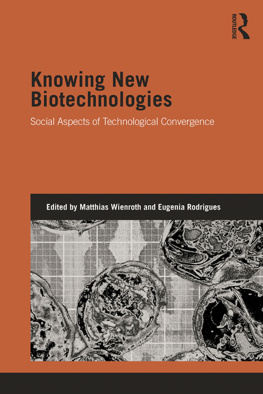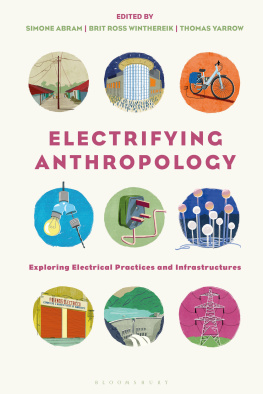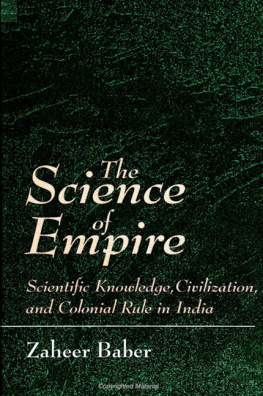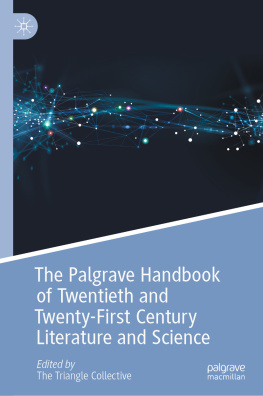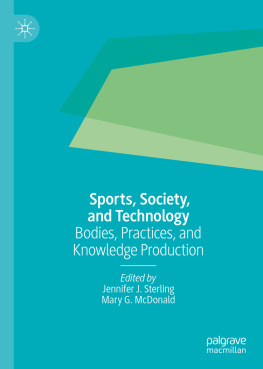Knowing New Biotechnologies
The areas of personal genomics and citizen science draw on and bring together different cultures of producing and managing knowledge and meaning. They also cross local and global boundaries, are subjects and objects of transformation and mobility of research practices, evaluation and multi-stakeholder groups. Third, they draw on logics of convergence: new links between, and new kinds of, stakeholders, spaces, knowledge, practices, challenges and opportunities.
This themed collection of chapters from nationally and internationally leading scholars and commentators advances and widens current debates in Science and Technology Studies and in Science Policy concerning converging technologies by complementing the customary focus on technical aspirations for convergence with the analysis of the practices and logics of scientific, social and cultural knowledge production that constitute contemporary technoscience. In case studies from across the globe, contributors discuss the ways in which science and social order are linked in areas such as direct-to-consumer genetic testing and do-it-yourself biotechnologies.
Organized into thematic sections, Knowing New Biotechnologies explores:
ways of understanding the dynamics and logics of convergences in emergent biotechnologies;
governance and regulatory issues around technoscientific convergences; and
democratic aspects of converging technologies lay involvement in scientific research and the co-production of biotechnology and social and cultural knowledge.
Matthias Wienroth is Research Fellow at the Northumbria University Centre for Forensic Science and Visiting Researcher at the Policy, Ethics and Life Sciences research centre, Newcastle University. He studies sciencesociety relationships and the opportunities of cross-disciplinary knowledge production for socially responsible technology development.
Eugnia Rodrigues is Research Fellow at the University of Edinburgh. Trained in sociology at the Universities of Coimbra (Portugal) and York (UK), her research interests lie at the intersection of environmental sociology and STS with a particular interest in contemporary expertlay relations and their implications for knowledge democratization.
Genetics and Society
Series Editors: Ruth Chadwick, Director of Cesagen, CardiffUniversity, John Dupr, Director of Egenis, Exeter University, David Wield, Director of Innogen, Edinburgh University, and Steve Yearley, Director of the Genomics Forum, Edinburgh University.
The books in this series, all based on original research, explore the social, economic and ethical consequences of the new genetic sciences. The series is based in the Cesagen, one of the centres forming the ESRCs Genomics Network (EGN), the largest UK investment in social-science research on the implications of these innovations. With a mix of research monographs, edited collections, textbooks and a major new handbook, the series is a valuable contribution to the social analysis of developing and emergent bio-technologies.
Series titles include:
New Genetics, New Social Formations
Peter Glasner, Paul Atkinson and Helen Greenslade
New Genetics, New Identities
Paul Atkinson, Peter Glasner and Helen Greenslade
The GM Debate
Risk, politics and public engagement
Tom Horlick-Jones, John Walls, Gene Rowe, Nick Pidgeon, Wouter Poortinga, Graham Murdock and Tim ORiordan
Growth Cultures
Life sciences and economic development
Philip Cooke
Human Cloning in the Media
Joan Haran, Jenny Kitzinger, Maureen McNeil and Kate ORiordan
Local Cells, Global Science
Embryonic stem cell research in India
Aditya Bharadwaj and Peter Glasner
Handbook of Genetics and Society
Paul Atkinson, Peter Glasner and Margaret Lock
The Human Genome
Chamundeeswari Kuppuswamy
Community Genetics and Genetic Alliances
Eugenics, carrier testing and networks of risk
Aviad E. Raz
Neurogenetic Diagnoses.
The power of hope and the limits of todays medicine
Carole Browner and H. Mabel Preloran
Debating Human Genetics
Contemporary issues in public policy and ethics
Alexandra Plows
Genetically Modified Crops on Trial
Opening up alternative futures of Euro-agriculture
Les Levidow
Creating Conditions
The making and remaking of a genetic condition
Katie Featherstone and Paul Atkinson
Genetic Testing
Accounts of autonomy, responsibility and blame
Michael Arribas-Allyon, Srikant Sarangi and Angus Clarke
Regulating Next Generation Agri-Food Biotechnologies
Lessons from European, North American and Asian experiences
Edited by Michael Howlett and David Laycock
Regenerating Bodies
Tissue and cell therapies in the twenty-first century
Julie Kent
Gender and Genetics
Sociology of the Prenatal
Kate Reed
Risky Genes
Genetics, breast cancer and Jewish identity
Jessica Mozersky
The Gene, the Clinic, and the Family
Diagnosing dysmorphology, reviving medical dominance
Joanna Latimer
Barcoding Nature
Shifting cultures of taxonomy in an age of biodiversity loss
Claire Waterton, Rebecca Ellis and Brian Wynne
Negotiating Bioethics
The governance of UNESCOs bioethics programme
Adle Langlois
Breast Cancer Gene Research and Medical Practices
Transnational perspectives in the time of BRCA
Edited by Sahra Gibbon, Galen Joseph, Jessica Mozersky, Andrea zur Nieden and Sonja Palfner
Science and Democracy
Making knowledge and making power in the biosciences and beyond
Edited by Stephen Hilgartner, Clark A. Miller and Rob Hagendijk
Knowing New Biotechnologies
Social aspects of technological convergence
Edited by Matthias Wienroth and Eugnia Rodrigues
Forthcoming titles include:
Controlling Pharmaceutical Risks
Science, cancer, and the geneticization of drug testing
Edited by John Abraham and Rachel Ballinger
Scientific, Clinical and Commercial Development of the Stem Cell
From radiobiology to regenerative medicine
Alison Kraft
Knowing New Biotechnologies
Social aspects of technological convergence
Edited by Matthias Wienroth and Eugnia Rodrigues

First published 2015
by Routledge
711 Third Avenue, New York, NY 10017
and by Routledge
2 Park Square, Milton Park, Abingdon, Oxon OX14 4RN
Routledge is an imprint of the Taylor & Francis Group, an informa business
2015 Matthias Wienroth and Eugnia Rodrigues
The right of the editors to be identified as the author of the editorial material, and of the authors for their individual chapters, has been asserted in accordance with sections 77 and 78 of the Copyright, Designs and Patents Act 1988.
All rights reserved. No part of this book may be reprinted or reproduced or utilized in any form or by any electronic, mechanical, or other means, now known or hereafter invented, including photocopying and recording, or in any information storage or retrieval system, without permission in writing from the publishers.
Next page
